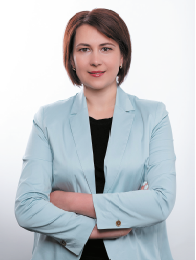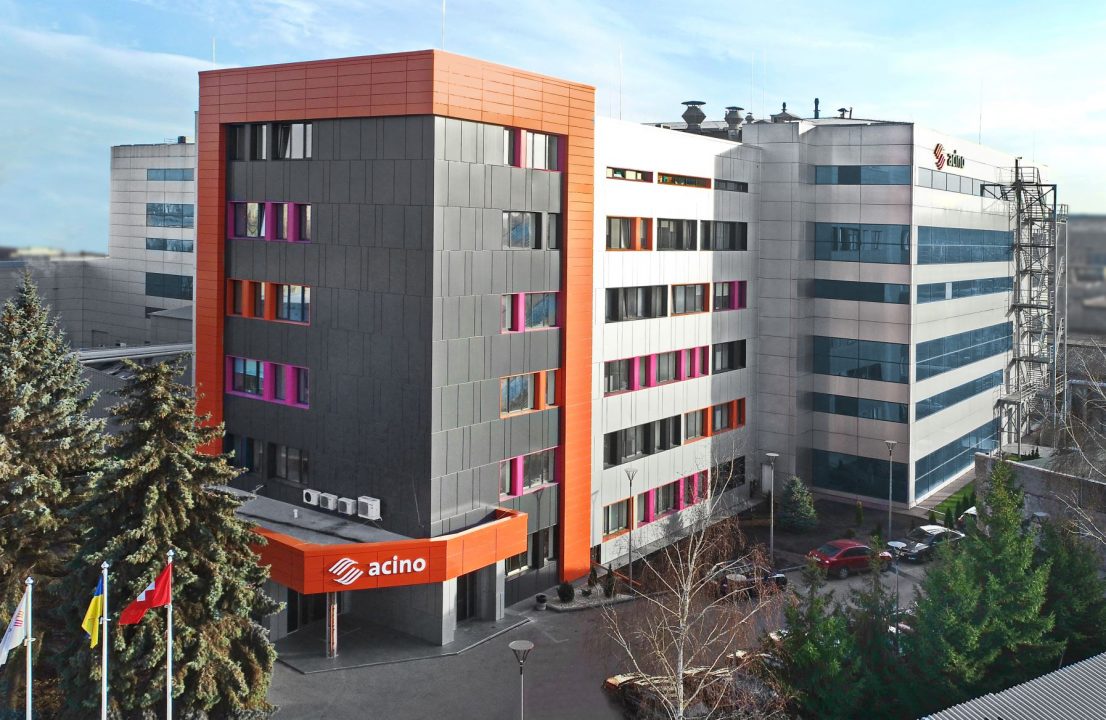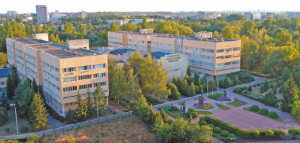 Afanasyeva Maryna
Afanasyeva Maryna
Director of international project management, business development and experimental production of Acino in Ukraine and the CIS country
– What was your professional career?
My career in the pharmaceutical field began back in 2006 at Biopharma LLC as an analytical chemist at the research center. It would seem a rather routine profession, which involves carrying out monotonous laboratory control, but this is not about the field of research and development in which the Research Center was engaged. For me, as a beginner, it was like magic, because the process of creating a new product requires not only basic knowledge but also creativity enabling me to find answers to non-standard questions. My curiosity and desire for further professional development in order to expand my knowledge in this field prompted me to go on a 6-year journey aimed at mastering industrial production. There, I was lucky enough to gain invaluable experience and manage the work of manufacturing facilities that produced herbal products, blood products, recombinant products, and probiotics.
In 2014, I decided to change the field of activity and return to development – that's how I joined the project management team for medicines development at Arterium Corporation. In this company, I finally understood that the development of new things is an integral part of me, my driver and motivator. Then my path crossed with the company Acino, where I was able to combine and simultaneously apply my experience gained in development, production, project management, and business development.
– What skills are needed to succeed in the pharmaceutical field?
First, it is a comprehensive approach to solving challenges - the ability to determine the essence of the problem, its causes and consequences. Thanks to effective analysis, a person can either prevent it or find the most optimal option for its solution. In the foreground should always be the goal of getting a result, and not just being part of the process.
Secondly, critical thinking is the ability to analyze, filter, question information, and draw conclusions. Such skills are needed both in professional and my personal life. Thirdly, emotional intelligence is the ability to understand what drives the environment, its intentions and motivation. Developed emotional intelligence helps to establish relationships both in the team and with clients. Fourth, stress resistance is the ability to control one's emotions and actions in stressful situations. We are faced with stress every day, so we need to find our own methods to normalize our psychological state. Personally, creating a harmonious environment around me calms me down during times of stress. For example, you can tidy up your desk, and closet, transplant flowers, etc. You need to learn to set priorities, this will also reduce the level of stress. When you need to complete many tasks, you should not do everything at the same time.
And finally, I want to highlight adaptability - the ability to adapt to circumstances and challenges. I believe that this is one of the most important skills today. Therefore, in order to develop it, it is necessary to leave the comfort zone more often, find a new occupation, and learn something that you have never done before. Do not be afraid of challenges, and do not avoid the opportunity to gain new experiences.
– Would you like to highlight one of the women from our field who inspired you?
Yes of course. It so happened that my direct supervisors at the Acino company were women: Bochagova O.P., Pashkovska G.V., Kravchuk Zh.M. And I can say that today I am grateful to each of them for the fact that they always inspired me, supported me, believed in me, and most importantly – never held back my desire for development and further growth, even if it was necessary to let me go for this. Each of them directly influenced me and who I am today. Of course, this is their direct merit.
– Where can students get experience and knowledge in pharmaceuticals?
First of all, you have to be a master in your field. As in any field, I believe it is necessary to start with basic practical skills. This can be experience gained in any laboratory if a person wants to move towards direct involvement in the manufacture, control or development of medicinal products. If a person sees his future more in the commercial part of our field or in marketing, then work experience as a doctor or in a pharmacy as a pharmacist is usually necessary. However, in both cases this is only the basis, it is no less important, in my opinion, to know your business perfectly, to be able to work with people, to be stress-resistant, and to have developed critical and systemic thinking.
– In your opinion, what can help in professional development?
Today, taking into account the situation, the skills that need to be mastered in each type of activity are usually "soft skills". Internal motivation, creativity, emotional intelligence, stress resistance, adaptability, and flexibility will help not only in professional development but also in education.
– What are your wishes for young specialists?
First of all, get practical experience in the "hard skills" profession. To "tighten" any skill from the list of soft skills, it is enough to do a few simple steps:
- Choose a skill you would like to master (e.g. emotional intelligence).
- Find sources of information on this topic, study them and be sure to try to apply them in practice.
- Derive your own formula for success based on practical results.
Mastery of skills usually comes with experience, but if you're committed to professional development, achievement, and collaboration for continued success, you'll definitely succeed.


